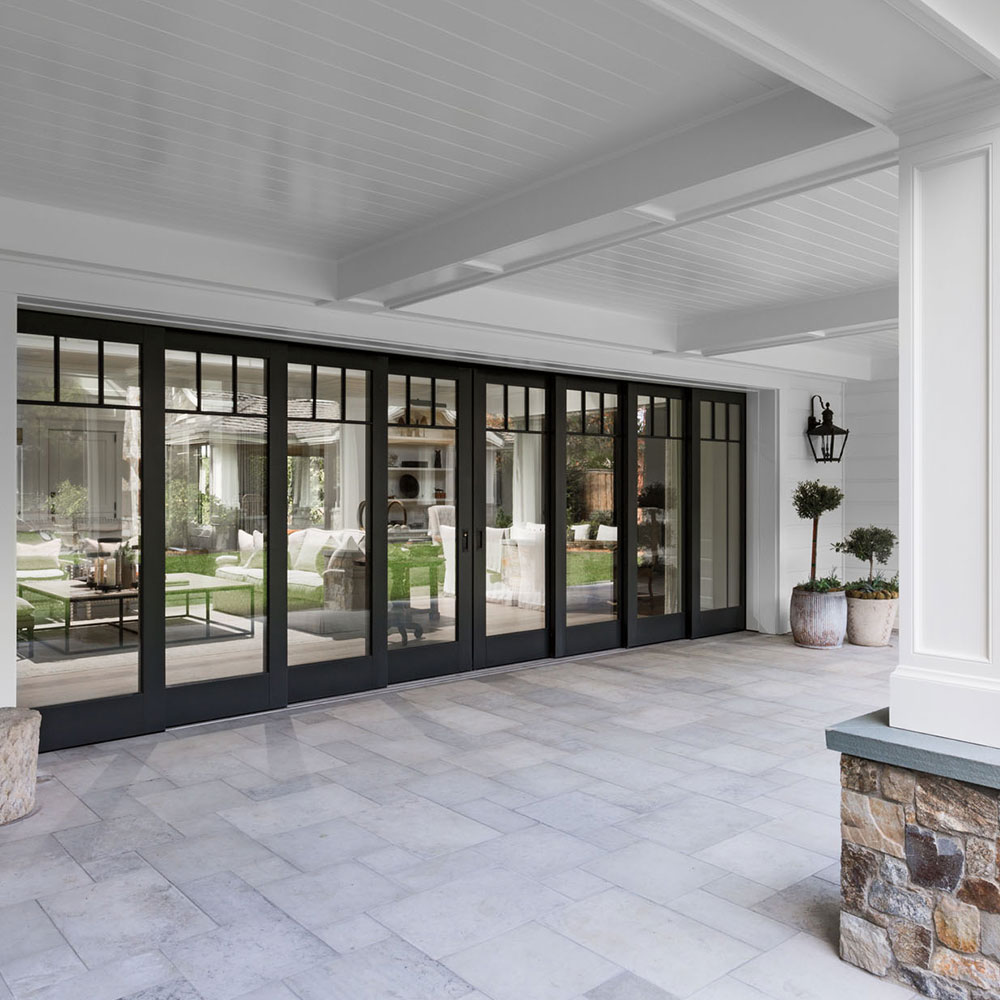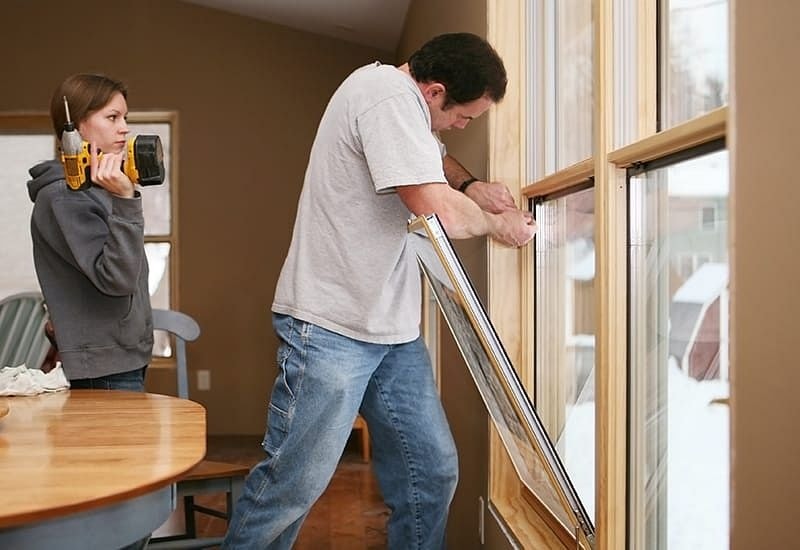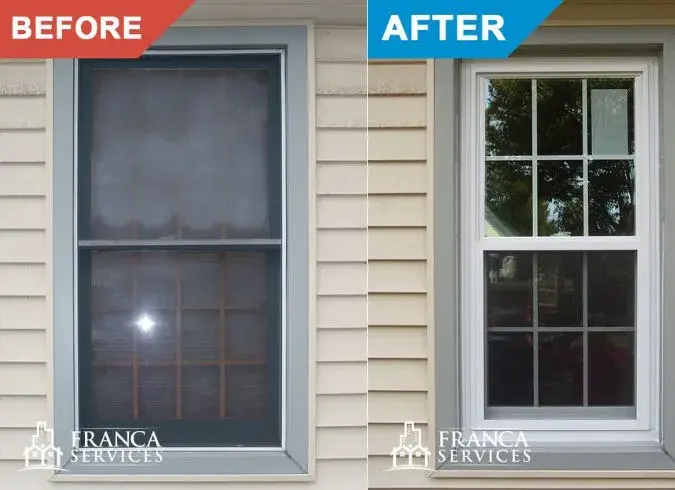Upgrade Your Home With Energy-Efficient Home Window Substitutes
In the realm of home improvement, the decision to upgrade to energy-efficient home window replacements can dramatically affect both the functionality and aesthetics of a house. Past the surface level of mere visual appeals, energy-efficient home windows offer a plethora of benefits that go past simple visual allure.
Advantages of Energy-Efficient Windows

The installment of energy-efficient windows supplies significant financial savings on energy expenses while enhancing environmental sustainability. Energy-efficient windows are designed to reduce warm loss and gain, minimizing the need for heating and cooling down systems to burn the midnight oil. By successfully insulating the home, these windows assist keep a comfortable interior temperature year-round, leading to reduced energy consumption and lowered utility prices. In addition, energy-efficient windows can help manage wetness levels within the home, reducing the threat of mold and mildew and mildew development.
Past the financial benefits, energy-efficient home windows contribute to environmental sustainability by lowering carbon emissions associated with power manufacturing. In general, spending in energy-efficient home windows not just enhances the convenience and effectiveness of a home however also straightens with ecologically conscious techniques.
Types of Energy-Efficient Glass
Numerous sophisticated sorts of energy-efficient glass deal special buildings that accommodate various demands and preferences in improving the sustainability and performance of buildings. Low-emissivity (Low-E) glass is a popular alternative created to reduce the amount of ultraviolet and infrared light that can travel through the glass, consequently lowering warm transfer. This kind of glass helps maintain a constant indoor temperature level, minimizing the demand for heating or cooling down systems, and inevitably reducing energy costs. An additional ingenious choice is spectrally careful glass, which permits noticeable light to travel through while blocking specific kinds of infrared radiation. This aids in preserving a comfortable indoor environment while lessening warmth gain. Triple-pane glass, containing three layers of glass with insulating gas between them, provides boosted thermal insulation, making it extremely energy-efficient. Furthermore, self-cleaning glass with an unique finishing that breaks down and loosens up dust when exposed to sunlight can decrease upkeep needs and maintain windows looking tidy. Each type of energy-efficient glass provides distinct advantages, allowing property owners to choose one of the most ideal option based upon their certain demands and objectives.
Variables to Think About When Selecting
When pondering energy-efficient window replacements, it is important to meticulously evaluate specific variables that line up with your sustainability objectives and desired energy cost savings. The U-factor procedures just how well the home window insulates, with reduced numbers suggesting much better insulation, while the SHGC suggests the home window's capacity to block warm from sunshine. By thoroughly assessing these variables, you can choose energy-efficient home windows that enhance comfort, decrease energy costs, and benefit the setting.
Setup and Maintenance Tips

Routine maintenance is crucial to maintaining the effectiveness of your energy-efficient home windows. Inspect the weather-stripping and seals for any type of rips or voids and change them if required to maintain the windows' power performance. Richmond window replacement.
Additionally, oil moving components such as hinges and locks to make sure smooth procedure. By following these installation and upkeep ideas, you can improve the energy performance of your home and extend the life expectancy of your energy-efficient home windows.
Cost-Benefit Analysis of Upgrading

Energy-efficient home windows are developed to reduce warm transfer, lowering the need for home heating and cooling systems to burn the midnight oil. This can bring about considerable cost savings on energy expenses, especially in regions with severe temperature levels. Furthermore, energy-efficient windows can boost the general worth of your home, making it extra eye-catching to possible purchasers if you make a decision to sell in the future.
When determining the cost-benefit analysis, element in the possible financial savings on energy expenses, any available incentives or refunds, and the life-span of the home windows. While the initial expense may read what he said be higher, the lasting savings and advantages of energy-efficient windows make them a wise investment for homeowners aiming to boost their home's energy efficiency and worth.

Conclusion
In conclusion, upgrading to energy-efficient home window substitutes uses various benefits such as minimized power usage, enhanced convenience, and price savings. By choosing the appropriate kind of energy-efficient glass and considering aspects like structure material and installation, home owners can make best use of the effectiveness of their windows.
When contemplating energy-efficient home window substitutes, it is essential to thoroughly evaluate details factors that line up with your sustainability goals and wanted energy financial savings. The U-factor steps exactly how well the home window shields, with reduced numbers showing far better insulation, while the SHGC suggests the home window's capability to block warmth from sunlight. By thoroughly reviewing these aspects, you can select energy-efficient home windows that enhance comfort, reduce power expenses, and profit the setting.
While energy-efficient windows may have a greater upfront price compared to standard windows, the lasting benefits frequently surpass the initial financial investment.In verdict, updating to energy-efficient window substitutes provides various advantages such as lowered power intake, increased convenience, and price savings.
Comments on “Cypress Window Replacement Providers You Can Trust Fund”